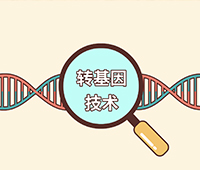据了解,这种食品酶是由非转基因瓜纳卡斯特青霉菌株AE-GLY生产的,旨在用于4种食品生产过程。
经过评估,专家小组认为,在预期的使用条件下,不能排除通过饮食接触引起过敏反应的风险,但这种情况发生的可能性很低。根据所提供的数据,小组得出结论,该食品酶在预期的使用条件下不会引起安全问题。部分原文报道如下:
The food enzyme β-glucosidase (β-D-glucoside glucohydrolase; EC 3.2.1.21) is produced with the non-genetically modified Penicillium guanacastense strain AE-GLY by Amano Enzyme Inc. The food enzyme is intended to be used in four food manufacturing processes. Dietary exposure to the food enzyme-total organic solids (TOS) was estimated to be up to 4.054 mg TOS/kg body weight (bw) per day in European populations. Genotoxicity tests did not raise a safety concern. The systemic toxicity was assessed by means of a repeated dose 90-day oral toxicity study in rats. The Panel identified a no observed adverse effect level of 943 mg TOS/kg bw per day, the highest dose tested, which when compared with the estimated dietary exposure, resulted in a margin of exposure of at least 233. A search for the similarity of the amino acid sequence of the food enzyme to known allergens was made and no match was found. The Panel considered that the risk of allergic reactions by dietary exposure cannot be excluded, but the likelihood is low. based on the data provided, the Panel concluded that this food enzyme does not give rise to safety concerns under the intended conditions of use.
本文由华体会体育大厅
食品资讯中心编辑,供网友参考,有任何疑问,请联系news@foodmate.net。







